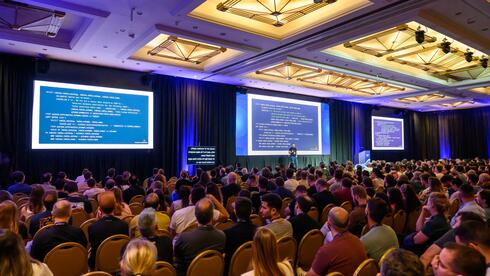The hayaData conference opened Tuesday in Tel Aviv for its fifth edition, drawing more than 1,000 participants and leading tech companies to explore the fast-changing world of data and artificial intelligence.
The not-for-profit event, hosted at the David InterContinental Hotel, is an initiative led by Israeli fintech firm Riskified in collaboration with partners including Google Cloud, Boomi, Databricks, Intuit, DoubleVerify, Monday.com, Firebolt and others. It brings together data engineers, scientists, analysts, developers and researchers for professional workshops and discussions.
The agenda features about 50 sessions across four tracks, covering big data, analytics, data science and engineering. Industry experts are also spotlighting advances in AI, including large language models, AI agents and MCP.
“We’re entering a new era where Agentic AI is transforming the data landscape,” said Avi Shauli, senior vice president of engineering at Riskified. “These tools allow us not only to process massive volumes of information, but also to accelerate execution and analysis, and make complex decisions autonomously. This is precisely the direction the industry is moving toward. hayaData is a unique opportunity to explore these innovations and learn how to apply them to take data capabilities to the next level.”
The conference comes as demand for computing power and data storage surges globally, straining infrastructure, particularly electricity supply, and slowing the rollout of new data centers. Real estate firm JLL projects the global data center market will grow at a compound annual rate of 15% through 2027, with potential to reach 20%. Another industry report forecasts the sector could be worth nearly $585 billion by 2032, driven by cloud computing and digital infrastructure needs.
Idan Tendler, a tech entrepreneur and founder of Anu Banu, an organization linking Israeli tech with social impact, warned that the AI boom carries risks for Israel’s social fabric.
“Israeli tech must lead the global AI revolution, but it also needs to look inward,” he said. “The pace of technological advancement risks widening gaps in society between those who are part of the revolution and those left behind. The tech sector has a responsibility to ensure no one is excluded.”
